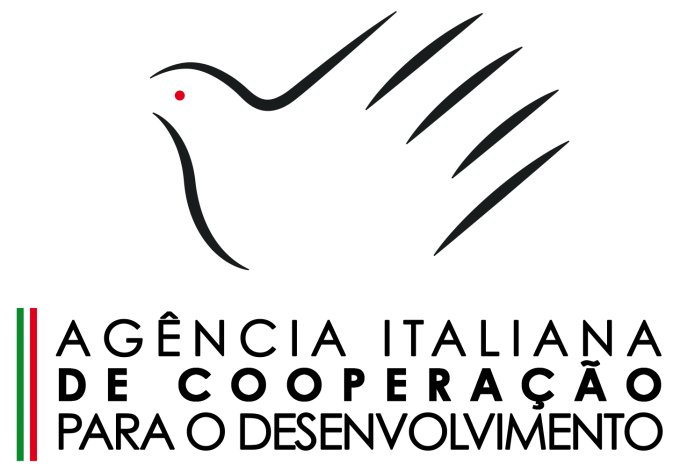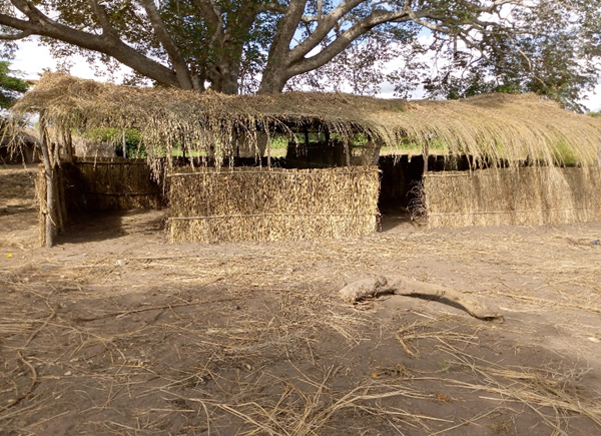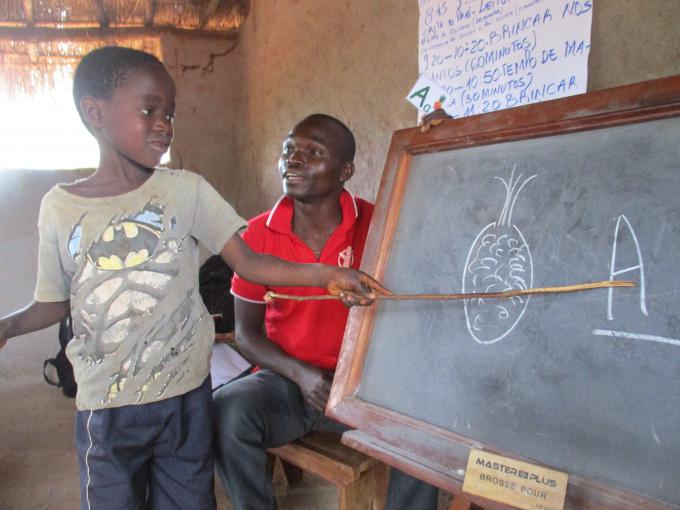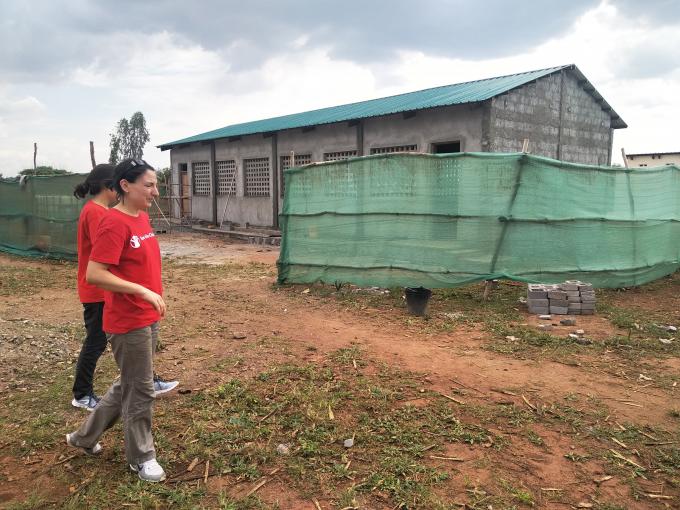“KUDZIUA”: AN APPROACH THAT PROMISES TO CHANGE THE FUTURE OF CHILDREN IN ZAMBÉZIA

Save the Children is, since June 2018, implementing a project called Kudziua in 12 communities in the districts of Morrumbala and Milange, in the province of Zambézia. The Kudziua Project (AID 011462) is financed by AICS - Italian Agency for Development Cooperation, and implemented in partnership with Rede Hopem and the University of Bologna (UNIBO).
Kudziua foresees an integrated approach with three axes of implementation that aims to facilitate: 1. Access to quality pre-school education for children (note that in the first year of its implementation, only in the pre-school component, the project benefited 924 children); 2. Ensure access to effective, quality health and nutrition programs, services for families and communities; and 3. Finally, it aims to ensure greater protection for minors against violence and abuse. In general, Kudziua targets children from 0 to 8 years old and their families.
The project envisages the direct involvement of 8,592 children (of which 55% are girls and 45% are boys) and 15,600 adults (of which 96.3% are women); the indirect ones include the children that form the Protection Committees (120); parents of minors in the 0–8 age group (1,900 people), members of the ECCD Centers Management Committees (420 people) and local administrative authorities (180 people).
1. Pre-school education
The project aims to facilitate access to pre-school education in order to improve the physical, socio-emotional, linguistic and cognitive development of children who attend Early Childhood Development centers (ECCD). To this end, the project built 12 temporary centers in each of the 12 target communities identified (six in each district), while the construction works for an equal number of permanent schools are being completed.
The Project Annual Report, from the beginning of the project until December 2019, indicates that Kudziua is succeeding thanks to an intervention strategy that focuses on raising awareness among community leaders, parents, and other community members about the importance of pre-primary education and the need to encourage children, through specific activities, at home and in schools; and understanding the link between child health, safeguarding and cognitive development. The awareness sessions were attended by approximately four (4) thousand people in the six target communities of the project in the district of Milange, and (three) 3 thousand people in the other six communities in Morumbala.
ECCD Centers have Management Committees, composed of 10 members in each community, who are involved in planning, evaluating educational programs and maintaining the centers. In parallel to these committees, a group of 20 technicians was created, which then formed two groups of 12 reading facilitators who began to become familiar with the children (two in each community, totaling 24 facilitators).
In addition, the project has 60 pre-school animators (48 staff and 12 alternates) trained in ECD by technicians who are members of the main local educational institutions such as the Teacher Training Institute (IFP); the Provincial Directorate of Education and Human Development (DPEDH); the District Services for Health, Women and Social Action (SDSMAS); and the District Youth and Technology Education Services (SDEJT), under the supervision of the project team. The trainers were previously selected and trained by Save the Children's specialized ECD technicians. This type of work facilitates the involvement of government partners at the local level in the processes of transmitting competences and, consequently, the sustainability of the project.
The didactic and recreational materials used in the schools were designed to be easily adaptable to the local context and address themes related to family, friendship, health and the importance of the learning process. Part of this material is already being used in the provisional schools where the activities are carried out, while others destined for the affixing on the wall, murals and games for outdoor activities, will be developed and supplied in the second year of the project (already underway), with the opening of schools currently under construction.

The first results are tangible and positive as can be seen in the following indicators achieved: 1008 children could write in the pre-school school last year, of which 386 graduated and went to the Primary School.

2. Health service
In its holistic perspective, the project has a health component that aim at reducing the rate of acute malnutrition in children, and to ensure that all children receive mandatory vaccines. There are 12 health committees, each formed by 25 members, for a total of 300 people involved. Like the ECCD committees, these were formed and gained competences in the areas of nutrition, integrated child health management, water, sanitation and hygiene, family planning and traditional childbirth assistance.
The project works in collaboration with the local health authorities and, with a view to improving the provision of services to the reference health units in the target communities, it developed some actions that included the identification, acquisition and distribution of medical-surgical material in four health centers in both districts. This equipment will, among others, reinforce assistance services for malnourished children, pregnant women and new mothers.
During the implementation of the project, technical support was provided once a month to the Health Units on the collection of data and in the management of health activities with the communities and supervision of activities were carried out by health volunteers through the creation of mobile brigades.
Specific training was also provided for health professionals regarding the techniques of Neonatal Intensive Care (helping babies breathe - HBB) and care for premature babies (Kangoroo Mother Care).
3. Child Protection
In the field of child protection, as of the second year of the project, Kudziua created and formed, in each of the 12 communities, a Child Protection Community Committee, whose members, which include 120 children, are being provided with capabilities to identify, resolve or report cases to competent authorities.
In addition, the project has a gender component, developed by HOPEM, which is reinforced by assisting the ECCD Management Committees in promoting positive strategies for with educational messages by the children's parents (positive parenting). In this context, 12 volunteers were identified, trained and coordinated on the theme of gender (one per community). Subsequently, 12 sessions to promote behavioral change of the parents of the children who attend the centers were carried out using the Parenting Skills Manual.
Context challenges
The project expects to positively affect an extremely vulnerable and poor area of Zambézia until mid-2021, but one aspect of the context to be taken into account is that Zambézia is cyclically the target of storms and heavy rains that ended up having very negative consequences for the population.
These aspects also affected the implementation of the project, in terms of accessibility to the target communities. Some important consequences that have occurred: the delay in the construction of the schools and consequently in the provision of quality education for children; the possibility for Health Units to reach communities or vice versa has not been reached, causing health services to be reduced.
The Project's strategy to overcome difficulties is to always work together with local authorities to manage all emergency situations and reduce the isolation of communities.
Follow us on social media:
Twitter: @aicsmaputo (Twitter: https://twitter.com/aicsmaputo)
Facebook: @AICScooperazionemaputo (Facebook: https://www.facebook.com/AICScooperazionemaputo/)
 Mozambique
Mozambique